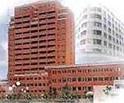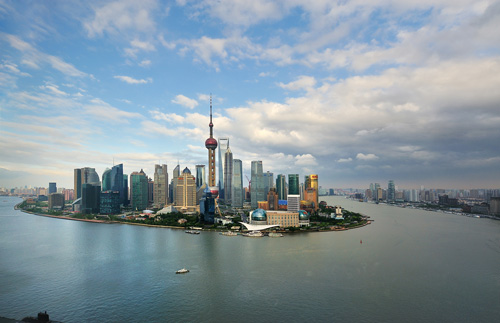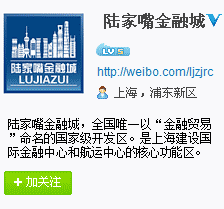Experts look at Shanghai in the next 30 years
|
|||||||||
( chinadaily.com.cn )
Updated: 2015-02-14
The Shanghai government's development research center, a main think tank for the municipal government, held three seminars on the city's development in the next 30 years. Dozens of experts from such fields as city construction and governance and management submitted proposals to the government.
"To build Shanghai into a global center city, the government needs to attach more importance to its economic structure than economic scale," said Zhang Youwen, an economics researcher at the Shanghai Academy of Social Sciences.
The key point of economic globalization is transforming from trade liberalization to investment liberalization, requiring countries to open up their markets and lift investment controls, Zhang said. "Basically, it is to promote the free flow of production factors around the globe," he explained.
There are more than 400 bilateral investment agreement negotiations in the world today, among which one-fourth involve China.
"The emerging economies, with China as a representative, benefit from this process. China's opening-up requires Shanghai to form a mature market economy, and have an efficient and clean government to attract more investment, trade and research and development centers of transnational enterprises," Zhang said.
Wang Xinkui, councilor for Shanghai's municipal government, said: "Shanghai should occupy the most valuable link in the global industry and value chains. And Shanghai should not expand its urban area, but improve the planning of its current area, so as to make the city more livable."
In the next 30 years, Shanghai should pay more attention to upgrading its infrastructure, especially public transportation facilities, and protecting the natural environment, to make the city a better place to live, said Jia Kang, a finance researcher at the Ministry of Finance. "Shanghai should be a city with modern infrastructure, clean environment, fair market environment, and mature city management system based on laws."
Shanghai should attract more global talents in research and development, as well as lower-end service industry job-takers, suggested Lu Ming, professor of economics at Shanghai-based Fudan University.
His studies show in the big US cities the number of higher-end service industry job-takers generally equals that of the lower-end service sector employees.
Lu said: "The government needs to increase its input to public services and let more people enjoy better medical care, education, pension and living conditions, especially for the migrant workers."
A big challenge for Shanghai is risk management, said Li Ruichang, professor of development studies at Fudan University, after mentioning the stampede in the Bund on the last night of 2014 that killed 35 and injured nearly 50.
In the next 30 years, Shanghai's government should prepare for natural disasters such as typhoons and the rising sea level, Li said. "Terrorist attack and tensions caused by wealth gap and conflicts between local residents and migrant workers are the unconventional risks the city faces," he said.
Li urged the city government to draw lessons from Japanese cities in city management and risk control.
By Li Yang in Shanghai(China Daily USA)






